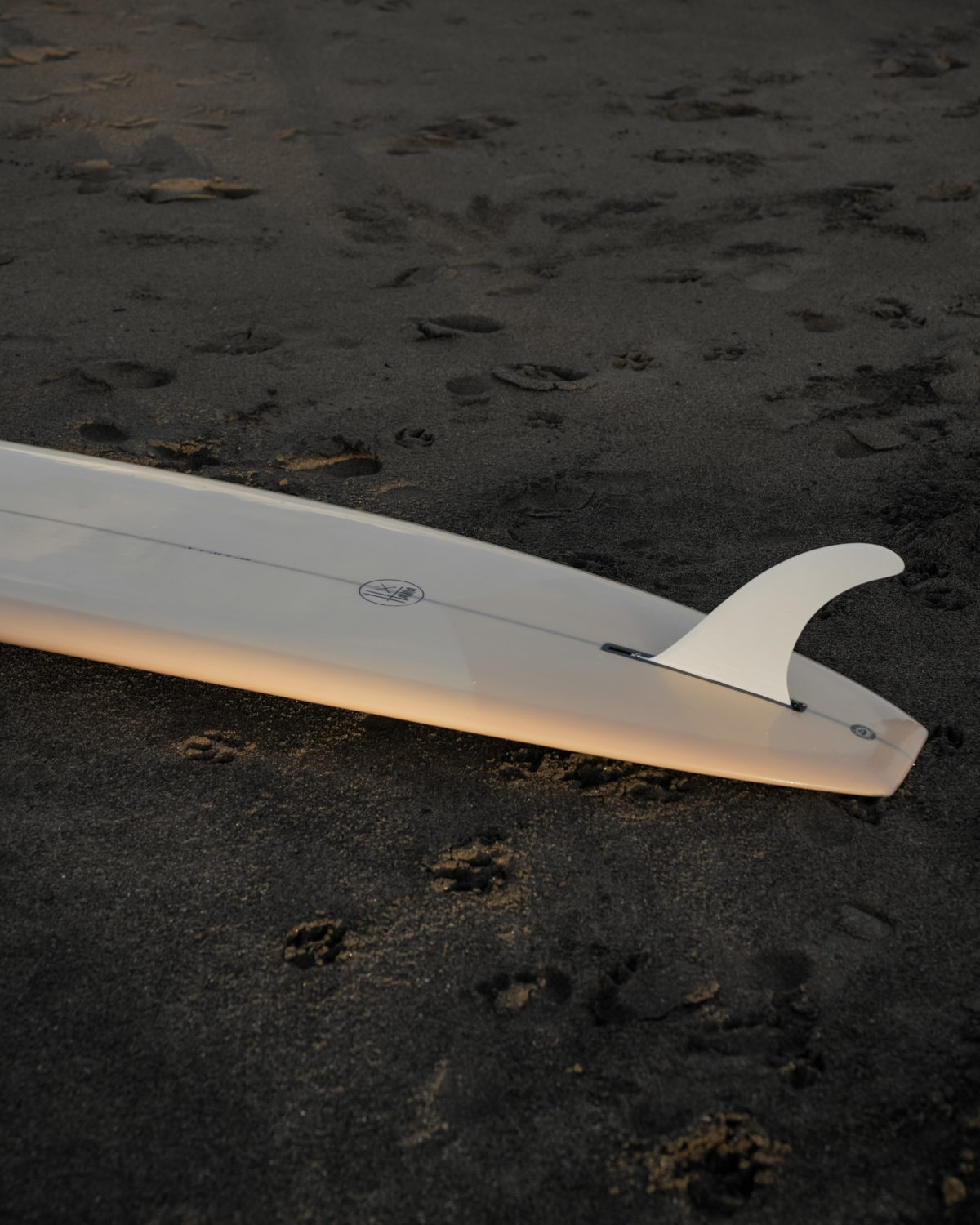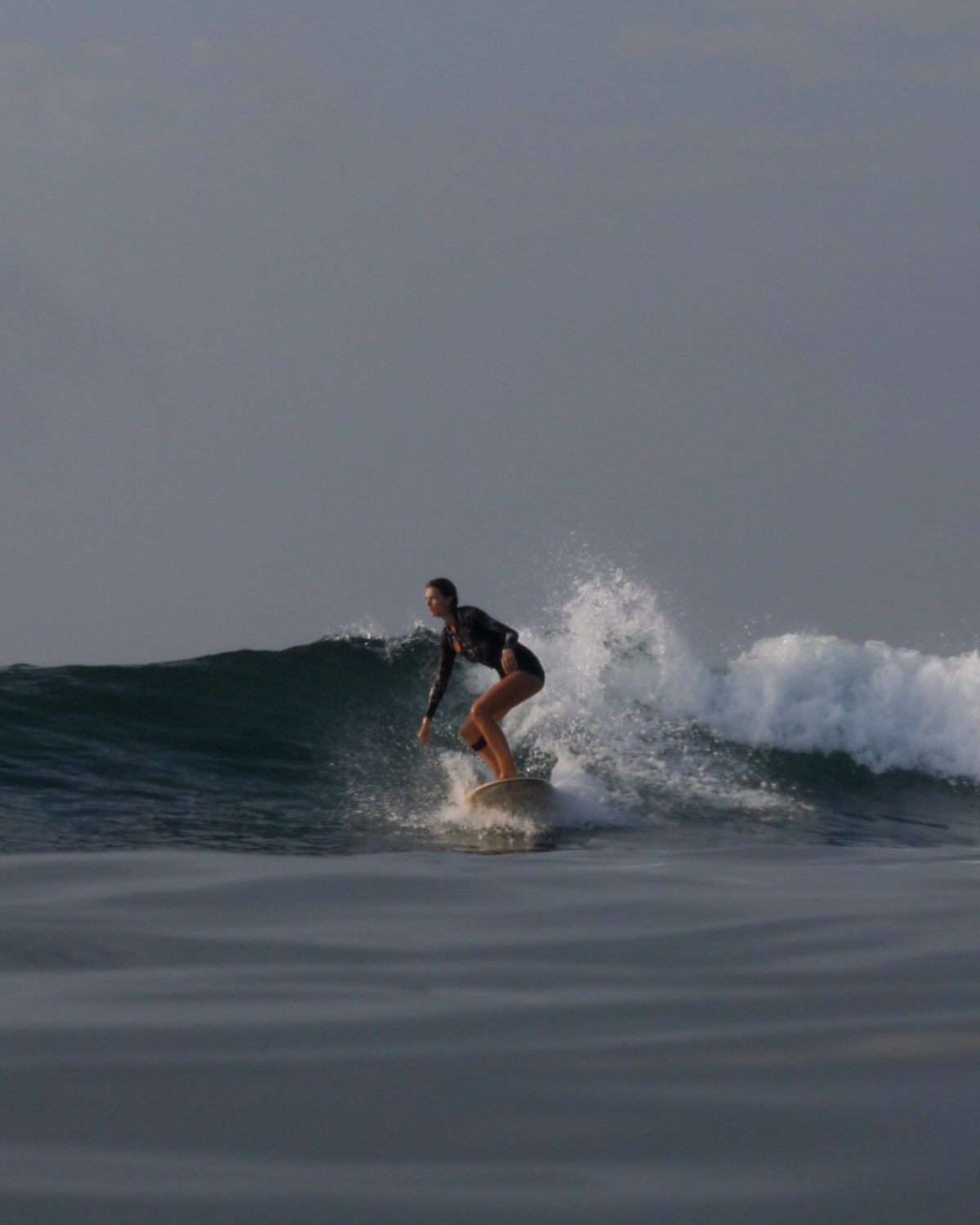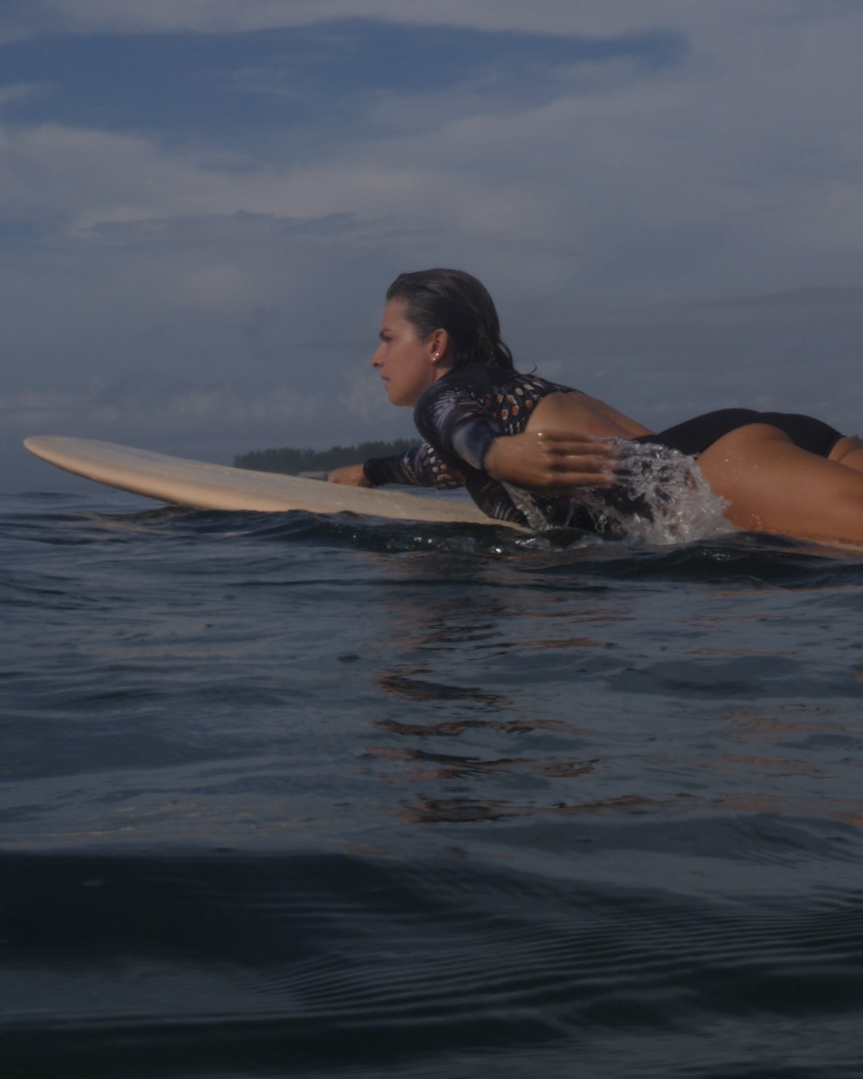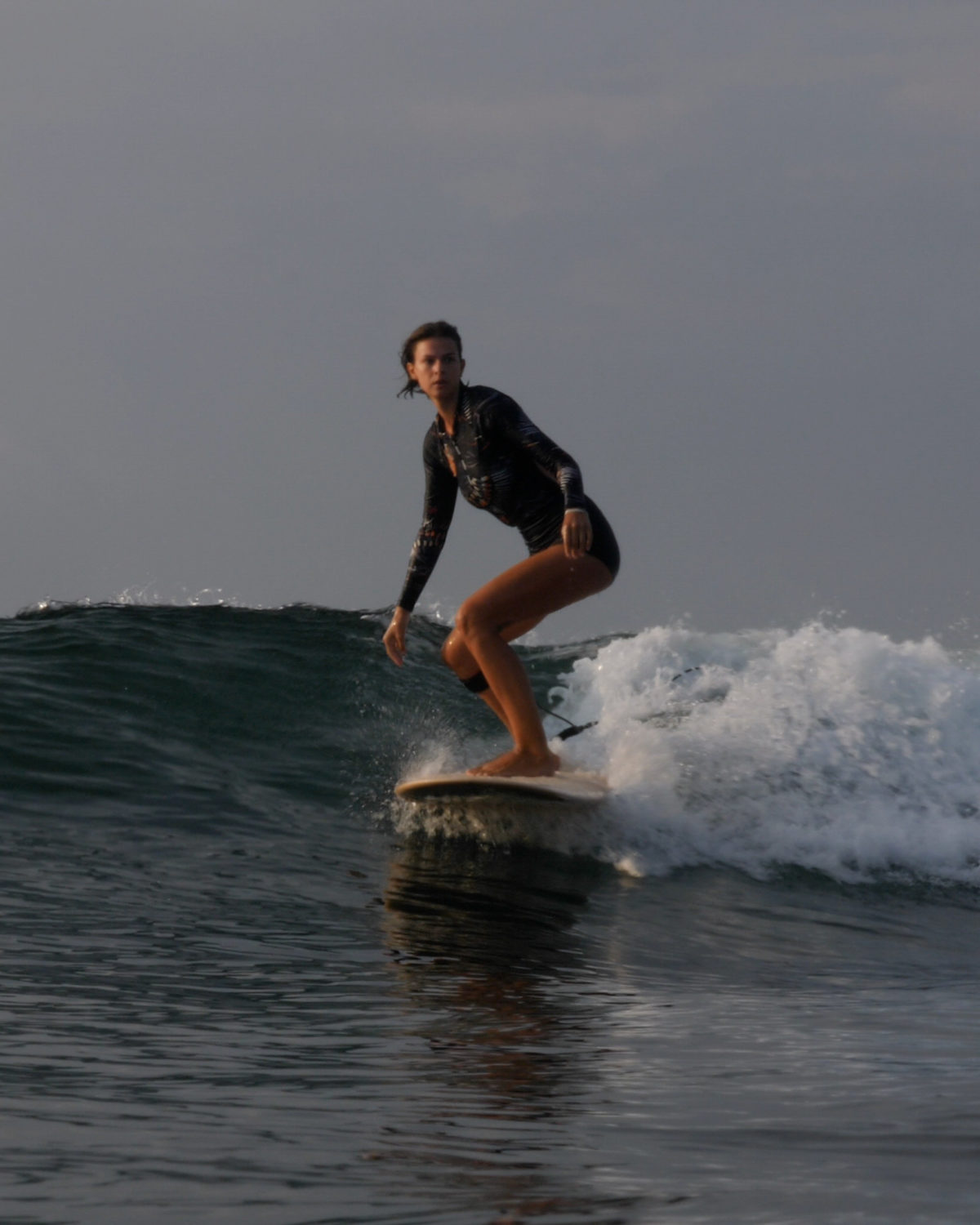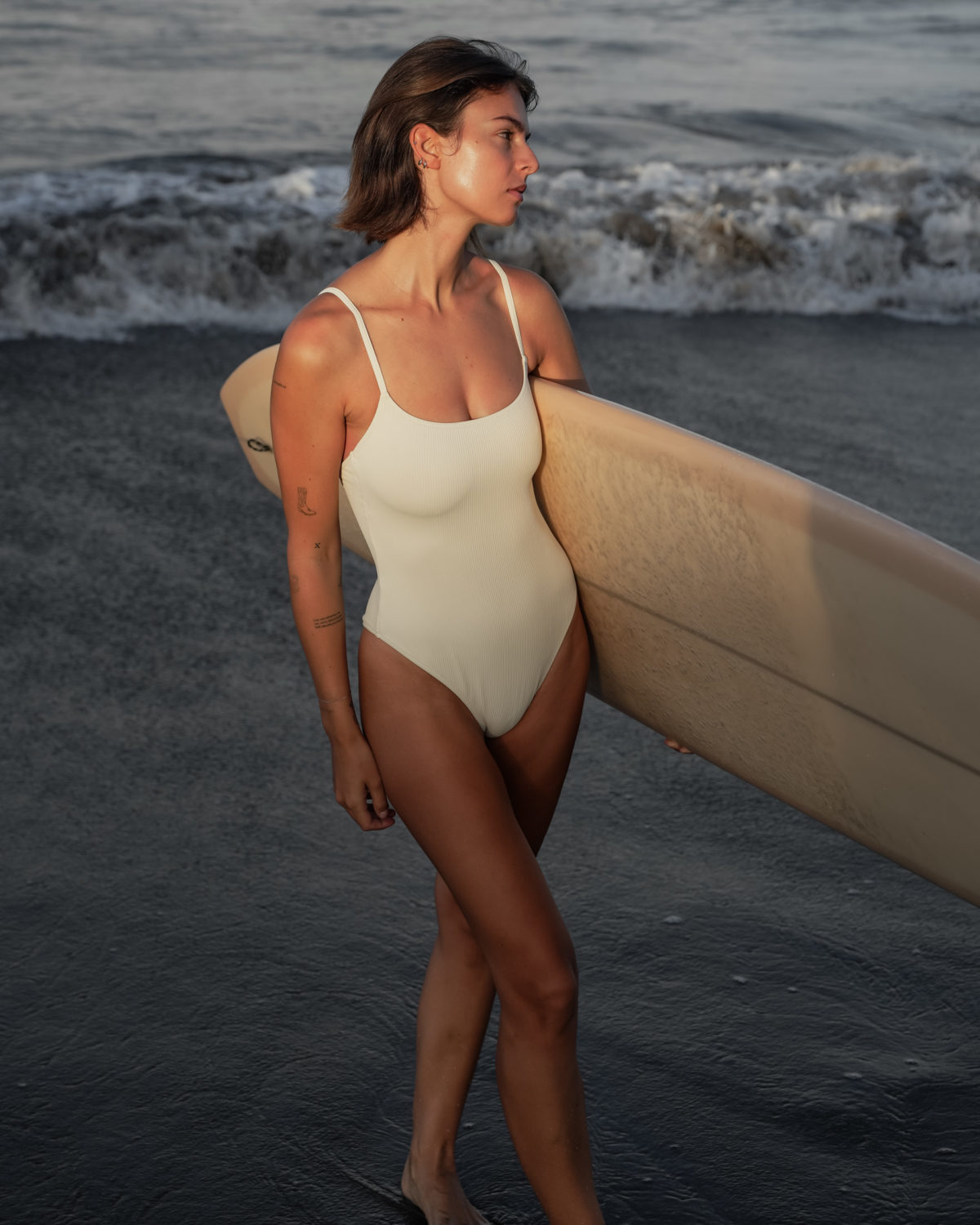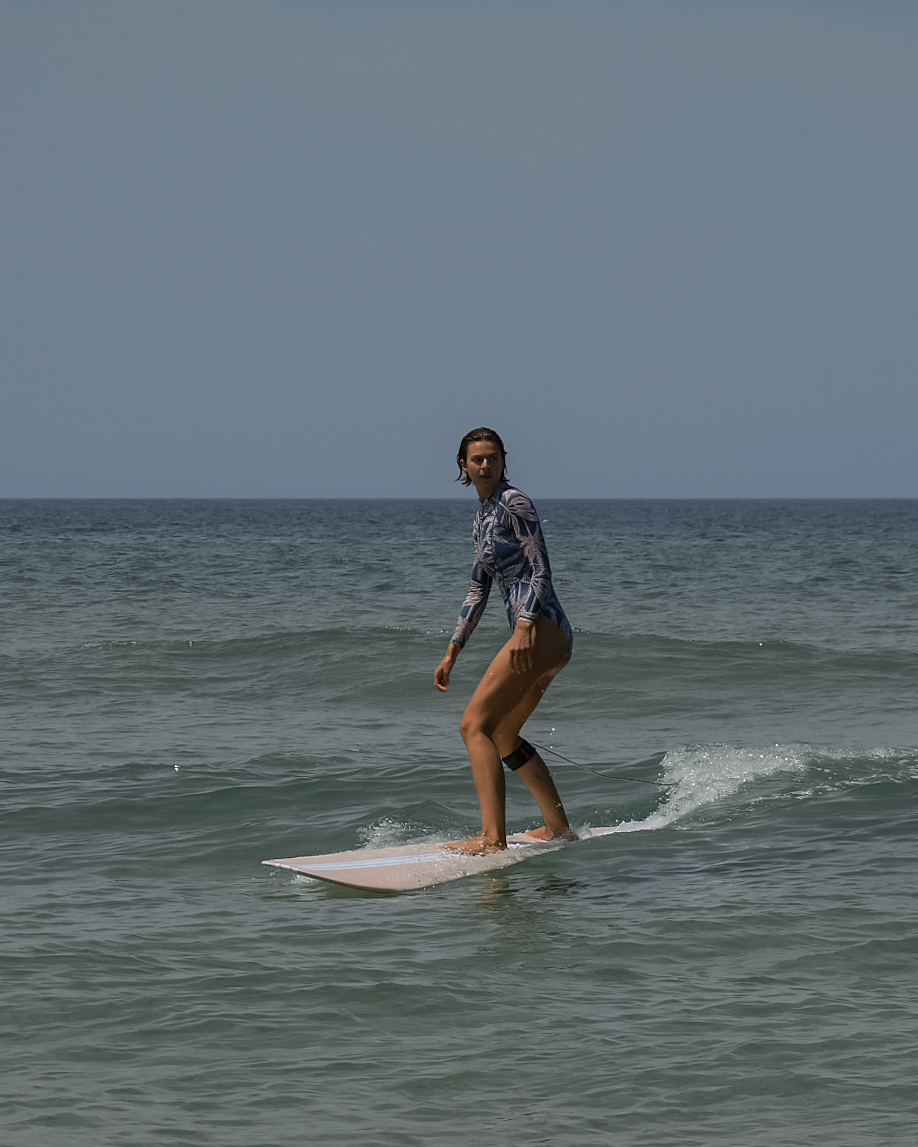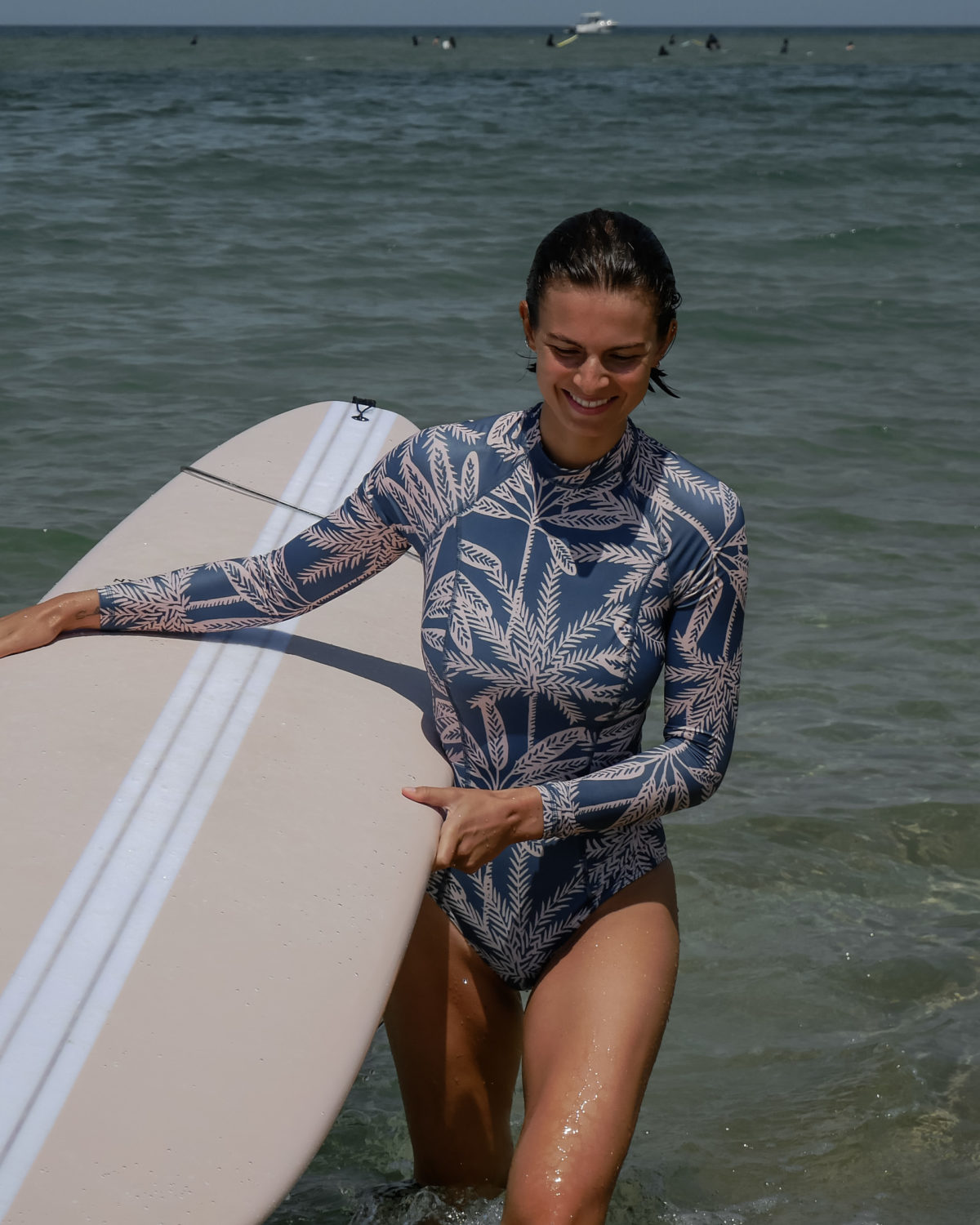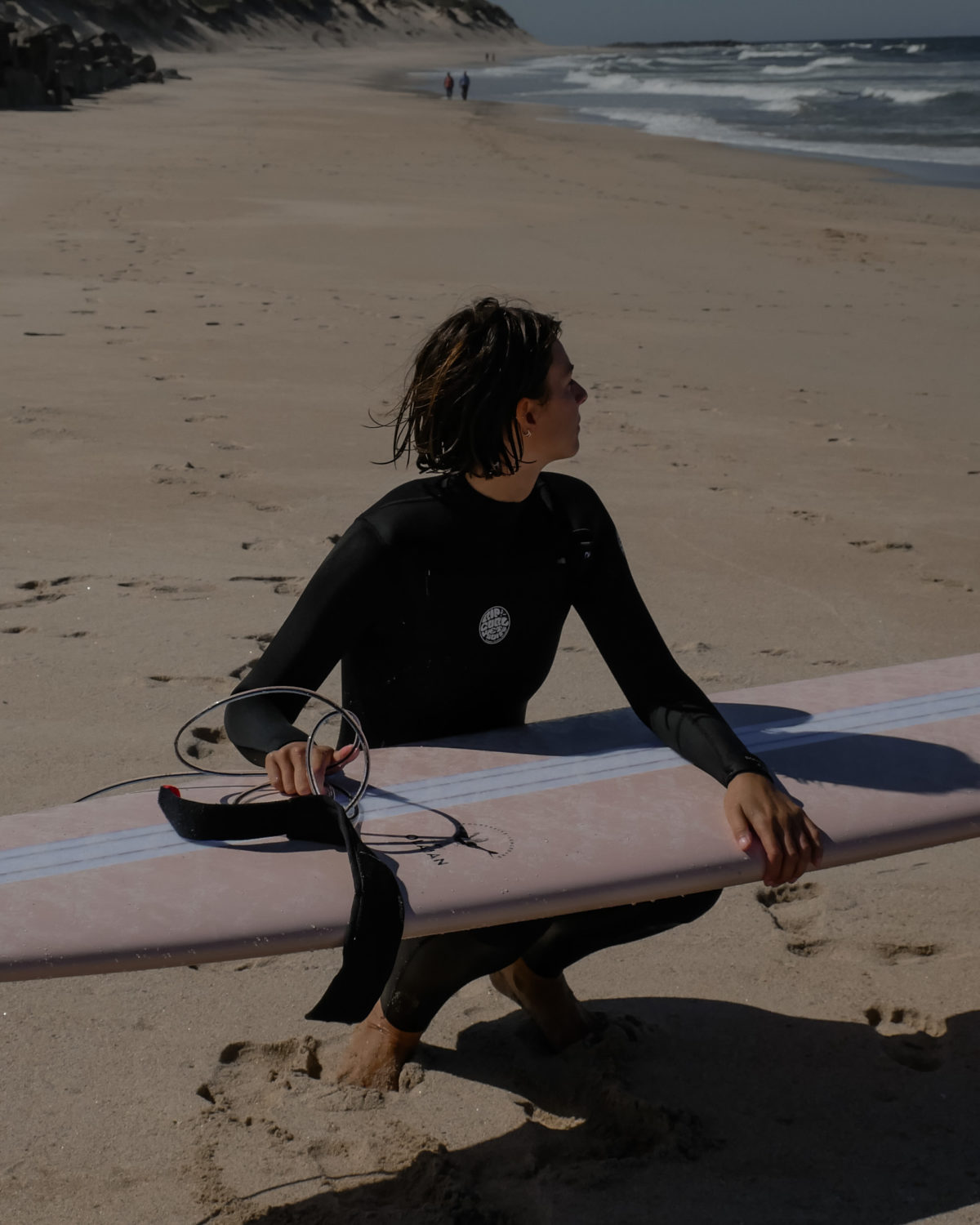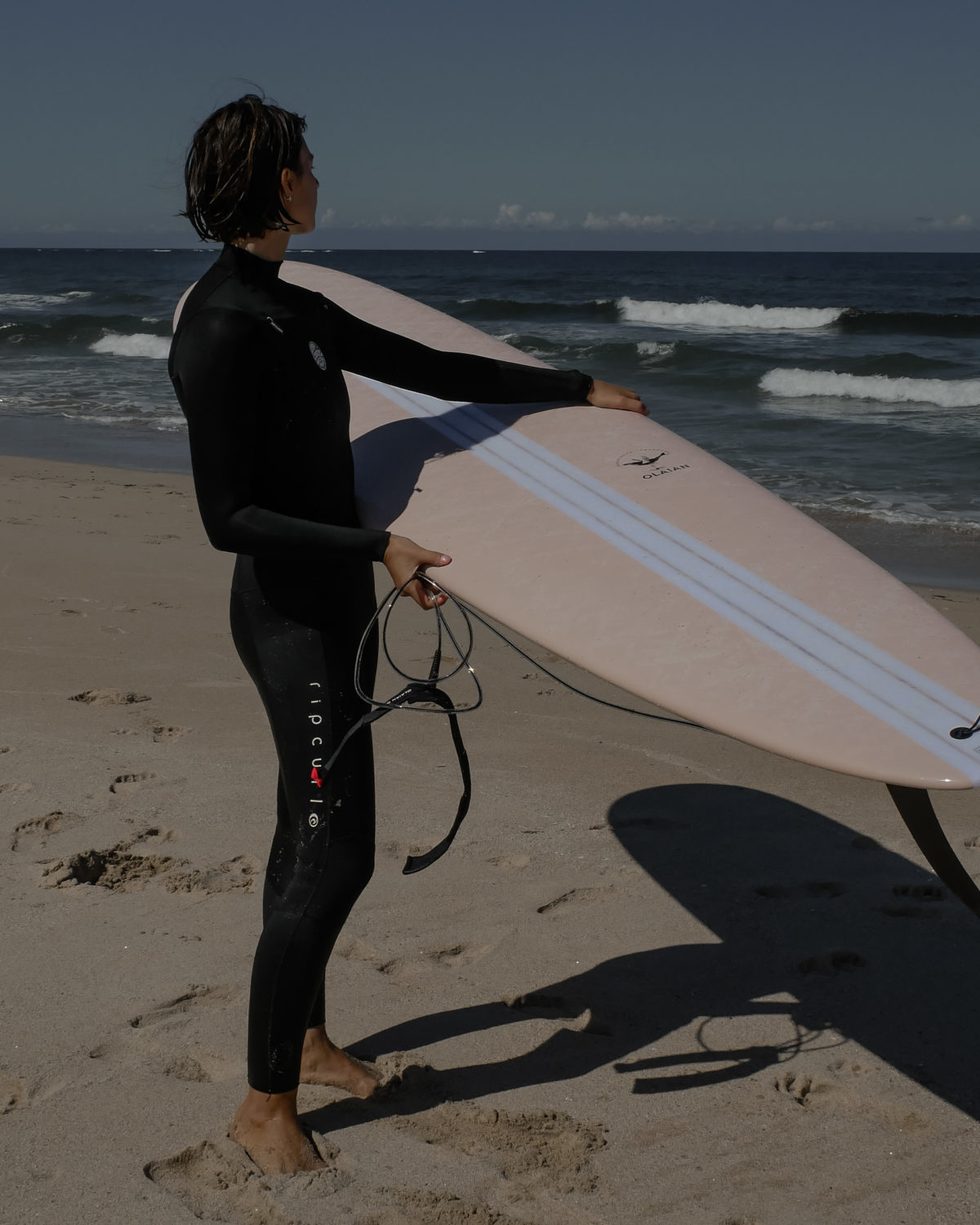There are certain things that people say you shouldn’t even bother trying at a certain age. Learning a new sport often falls into that category. But why is that? We’re here to go against that notion and say that it’s never too late to learn something new.
Jacky is living proof of that, as in her early thirties, she decided to give surfing a real chance and learn the sport. For all of you who are also in your thirties (but, of course, also for those who are younger or older), we want to inspire and tell you why you can still try new things over 30.
The fascination of surfing: Why it’s never too late to discover a new passion
Do you think that surfing is only for the young and that it’s too late to learn as you get older? Think again! Learning to surf in your 30s is absolutely possible and is even becoming a trend.
But what is the whole fascination of surfing? Anyone who has ever stood on a surfboard and caught their first small whitewater wave knows why this sport is so popular. You feel alive and free when you’re standing on the board, surrounded by the waves of the ocean. It gives you a sense of being in harmony with nature and feeling the power of the water. Every moment on the wave is a new challenge that you have to master. It requires skill, balance, and courage to surrender to the elements. So, surfing is not just a sport; it also offers incredible mental benefits.
Jacky, for example, has tried many sports, but none of them allow her to disconnect like surfing does. When she focuses on the waves and surfing, there’s no room for thinking about to-do lists or any problems. Her focus is entirely on and in the water. And then there’s the feeling of paddling for a wave, catching it, and riding it all the way to the shore. It’s indescribable.
Learning to surf at 30: Tips and tricks for late beginners
Many people start a new sport in adulthood, and the same goes for surfing—there are beginners over 30 out there, so you’re definitely not alone. Sure, learning something new can be more challenging when you’re no longer a child, but it’s not impossible. It just often requires a bit more courage.
The best way to get started with surfing is to either attend a surf camp or hire a surf instructor. Before you hit the water, knowing the basic rules and techniques of surfing is essential. Surfing lessons can help you learn the fundamentals of riding waves, expand your knowledge, and improve your understanding of the sport.
Remember that these things take time; Rome wasn’t built in a day. But with some time, patience, and practice, you’ll soon be mastering the world’s waves.
Choosing the right surf spot: Where you should ideally catch your first waves
Did you know that choosing the perfect surf spot can make the difference between a frustrating day in the water and an unforgettable experience? Especially as an adult surfer over 30, it’s crucial to find a spot that matches your skills and experience. You should never go into the water if you’re unsure about the conditions or don’t feel completely confident.
Absolute beginner surf spots can be found all around the world. So, first, choose a country you’d like to travel to and then research suitable surf spots there. Jacky loved surfing in Australia, Bali, and along the Atlantic coast in France. These places offer plenty of spots for beginners to catch their first waves.
Learning to surf at 30: The importance of proper technique and body positioning
Proper technique and body positioning are crucial when you learn to surf as an adult. Even if you’re over 30, it’s never too late to master the basics. Ensure you’re at a surf spot with gentle waves that are ideal for beginners.
In general, having a certain level of fitness can be helpful. Surfing requires muscle strength and endurance, which you can train and improve even outside the water. Balance and flexibility also play an essential role in surfing, and these can also be improved outside of the water. So, if you want to get started right away, prepare accordingly, and the entry will be much easier.
But surfing isn’t just about strength; it’s about the correct position on the board and the right paddling technique. A good surf instructor or a surf camp can help you improve your skills in this area and teach you the proper technique.
How to prepare optimally for surfing: Fitness and mental preparation
As mentioned before, besides learning the correct technique and body positioning, fitness plays a crucial role in surfing. Yoga can also help improve your body control and strengthen your muscles. Additionally, mental preparation is just as important as physical fitness. Visualize yourself gracefully riding the waves and imagine yourself conquering every challenge. It may sound strange, but it helps! Surfing will also test you mentally, so don’t underestimate that. Through holistic preparation, you can be physically and mentally in your best shape to improve your surfing abilities.
Safety first: Important rules and behaviors for beginner surfers
Before diving into the waves, you must familiarize yourself with the basic rules and behaviors of surfing. Especially as a beginner over 30, it’s important to prioritize safety. Always follow the instructions of experienced surfers and show respect to others in the water. There are certain rules in the water that you should definitely know. Additionally, you should inform yourself about the specific conditions of the surf spot to recognize potential dangers. Remember, safety should always be a top priority when surfing. This way, you can fully enjoy your new passion and have unforgettable moments on the waves.
Jacky’s personal experience: Learning to surf at 32
In 2015, Jacky stood on a surfboard for the first time in Australia. She spent five days in a surf camp, and it became clear to her right away: she wanted to continue surfing and learn more. Living in Germany, however, makes it a bit more challenging as there are usually no waves here. In the years after the surf camp, she only went into the water somewhere with a surfboard maybe once a year. That didn’t allow her to improve her surfing skills.
At the end of 2023, during her six months in Bali, she decided to take surfing more seriously. In mid-February, she not only bought her first surfboard but also booked a surf instructor and went in the water with them three to four times a week.
Of course, you don’t have to buy your own board right away, but a few factors held Jacky back. For one, she was hesitant about renting a board and the fear of breaking it. By buying her own board, she could also save the costs of renting, which makes sense when you go surfing 3-4 times a week.
In the first two months, Jacky struggled with some mental issues, which sometimes resulted in panic attacks. She will write a detailed post about this soon, but for now, we just wanted to mention it briefly.
Fast-forward two months: Jacky made incredible progress due to the regularity of her surf sessions. She has become more confident and improved her technique. Currently, she is in Europe and has been trying to surf regularly for over 1.5 months. Consistency is crucial for making progress.
Furthermore, Jacky has developed a true passion for the sport, and no other sport gives her the feeling that surfing does. So, it’s very likely that the topic will come up here more often, and you’ll learn more about surfing.

